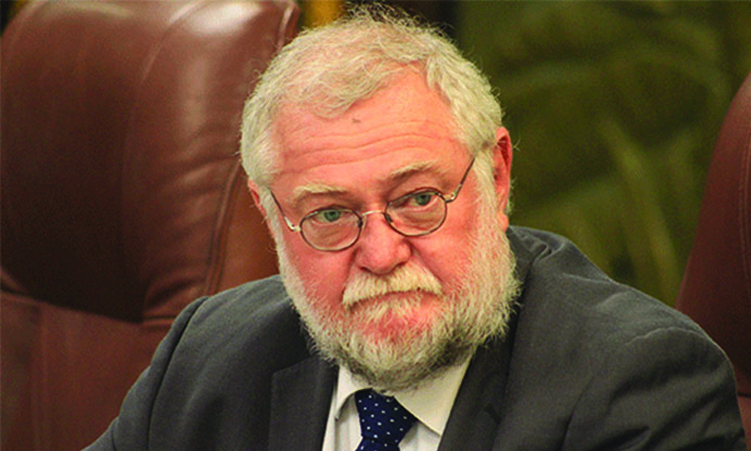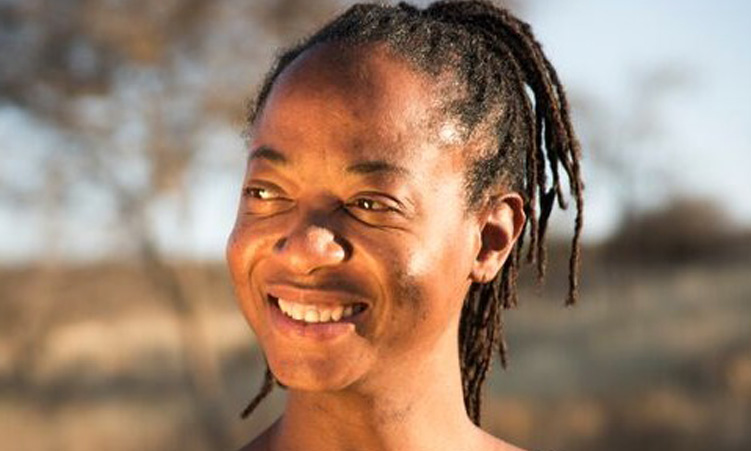Minister of agriculture, water and land reform Calle Schlettwein has come under fire for saying cooking with wood or charcoal is unhealthy and contributes to global warming.
He posted these remarks on X on Wednesday.
This has received mixed reaction by social media users and politicians.
Schlettwein said fuel emits more carbon dioxide than the total emission of the global marine and aviation industries combined.
“It has very serious negative health impacts on 175 million households on the African continent (about 900 million individuals),” he said.

‘UNNECESSARY’
Independent Patriots for Change (IPC) national spokesperson Imms Nashinge says it was unnecessary for the minister to attend a summit on clean cooking with no benefit for ordinary Namibians.
This comes after Schlettwein on Tuesday attended a ‘clean cooking’ summit in France, themed ‘Catalysing Multi-Stakeholder Partnerships’.
“Running to France was a waste of money which we already do not have. There are more beneficial summits he could attend,” he says.
Nashinge questions the practicality of achieving clean cooking and what the alternative could be if the country is to shift from cooking with wood.
“It seems the government has run out of ideas and can’t think of the solutions to problems people are faced with,” he says.
Nashinge says some Namibians living in urban areas, especially at informal settlements, are still using firewood as a form of energy.
“Our people don’t have food and water, can’t afford basic needs, have insufficient power, and we have unemployment as a challenge. How about we start there?” he asks.
Nashinge says alternatives to wood would be costly and the government may not be able to afford assisting the poor.
“This is an insult to Namibians. What percentage do we contribute to these emissions?” he asks.
‘OBLIVIOUS’
Affirmative Repositioning (AR) spokesperson George Kambala says Schlettwein is oblivious to Namibians’ problems.
He says about 50% of Namibians live in rural areas, where there is no electricity.
“We should first consider making sure every corner in Namibia is electrified,” he says.
The Ministry of Mines and Energy in 2022 said 300 000 Namibian households live without electricity, and the provision of electricity remains a challenge as the country’s overall electrification rate is estimated to be about 50%.
An estimated 70% to 80% of rural households do not have access to electricity, while around 70% of households in urban areas are connected to the power grid.

BASIC NEEDS FIRST
Meanwhile, social justice advocate Rinaani Musutua says it’s problematic that someone talks about people who cannot afford the basics of living “in that way”.
She says the government should provide the masses with basic needs before transiting to what the developed world is doing.
Musutua, however, believes it’s possible that poor communities could access clean fuels if this was equally distributed.
“There was a report in the newspaper of the N$410 billion that was shared among 1 763 individuals, now imagine if this amount was equitably shared,” she says.
Musutua says Namibia is not a poor country, but is poorly managed.
“We have to make sure we address the issue of companies cheating the government with taxes to collect enough revenue to give the people the basics. We can then shift to using clean energy,” she says.
The president of the National Democratic Party (NDP), Martin Lukato Lukato, says Schlettwein needs to retract his remarks and apologise to the Namibian people.
“This is disappointing, our people are living in poverty. We were poor before independence, now we are poorer,” he says.
He says clean cooking would only be possible if the country’s resources were equally shared.
“It’s only the ruling party and people in parliament who are benefiting. They keep passing laws that don’t affect the poor – without consultation,” Lukato says.
THE SUMMIT
The clean cooking summit aimed to make Africa a better place by mitigating the impacts of a lack of access to clean cooking, which has dire consequences for health, climate and gender equality.
In his address, Schlettwein said families and communities must have the financial capacity to live clean, cook clean and use resources sustainably.
“A much broader, more diverse and integrated approach is needed. The ingredients for clean cooking are, among others, clean energy, clean water, clean food, clean utensils and last, but not least, clean shelters with hygienic and clean sanitation systems,” he said.
Schlettwein said poor communities need assistance to access clean fuels.
“Financing clean cooking is much more than financing an energy transition, it must include financing water infrastructure, sanitation systems and smart sheltering,” he said.
Schlettwein could yesterday not be reached for comment on the reaction to his remarks.
Stay informed with The Namibian – your source for credible journalism. Get in-depth reporting and opinions for
only N$85 a month. Invest in journalism, invest in democracy –
Subscribe Now!







